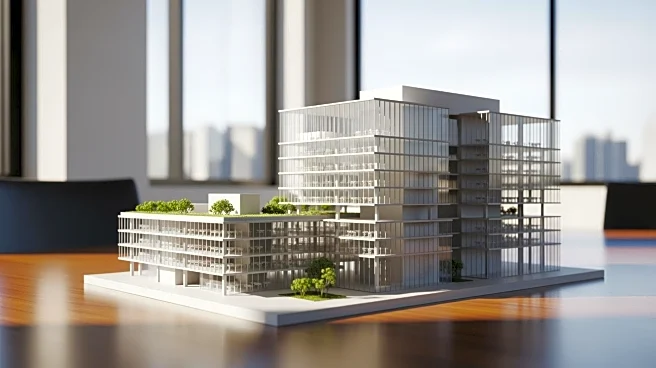What's Happening?
Ford Motor Company has opened its new world headquarters in Dearborn, Michigan, known as 'the Hub.' The facility is designed to foster collaboration among employees and accelerate product development, aligning with Ford's strategic focus on electrification,
connectivity, and self-driving technology. The Hub features a showroom, multiple courtyards, cuisine stations, and a prototype shop, aiming to attract top talent and improve operational efficiency. The new headquarters replaces the older Glass House and is part of Ford's broader initiative to modernize its operations and enhance its competitive edge in the global auto industry.
Why It's Important?
The opening of Ford's new headquarters marks a significant shift in how the company plans to operate in the future. By creating a space that encourages collaboration across different departments, Ford aims to speed up innovation and product development, which is crucial in the rapidly evolving automotive industry. This move is expected to enhance Ford's ability to compete with rivals focusing on new technologies such as electric vehicles and autonomous driving. The headquarters also symbolizes Ford's commitment to remaining a key player in the global market, potentially leading to increased profitability and market share.
What's Next?
Ford plans to complete the construction of the Hub by 2027, with 90% of its in-office employees working in new or renovated spaces. The company is expected to continue integrating its teams to foster innovation and streamline operations. As Ford adapts to new industry trends, it may face challenges in maintaining its competitive edge, requiring ongoing investment in technology and talent. The success of the Hub could influence other automakers to adopt similar collaborative work environments to drive innovation.
Beyond the Headlines
The development of Ford's new headquarters reflects broader trends in corporate real estate, where companies are increasingly designing spaces that promote employee well-being and collaboration. This shift may lead to long-term changes in how businesses operate, with a focus on creating environments that support innovation and adaptability. Additionally, Ford's investment in its headquarters highlights the importance of physical spaces in shaping corporate culture and driving strategic goals.

















